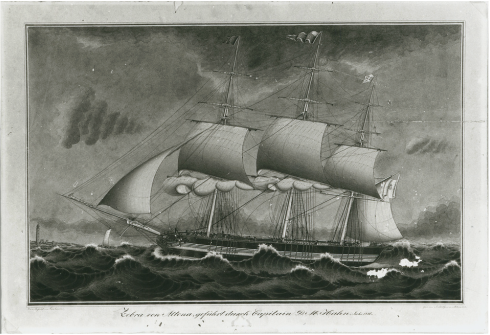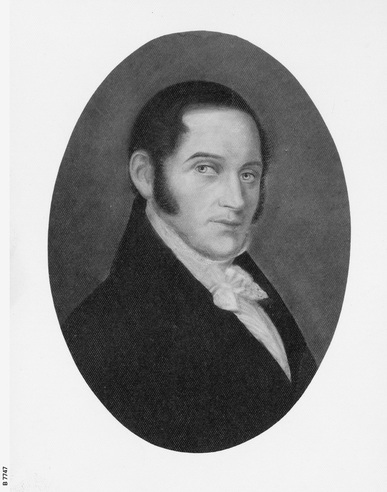the hahndorf settlers
In 1838, Danish Captain Dirk Meinerts Hahn (1804-1860) took a shipload of some 200 people from Prussia from the port of Altona (near Hamburg in Germany) to Adelaide. The passengers were all Christian refugees who were persecuted for their faith by the Prussian Government and chose to start a new life in Australia. Captain Hahn was credited with securing land for this group of settlers, later known as Hahndorf, named by the settlers in his honour. Today the historic town is one of South Australia's premium tourist destinations.
Although Captain Hahn did not settle in Australia, his important role in settling the Prussian immigrants is nevertheless an interesting chapter in local immigration history with a Danish component.
Although Captain Hahn did not settle in Australia, his important role in settling the Prussian immigrants is nevertheless an interesting chapter in local immigration history with a Danish component.
The zebra
|
Captain Hahn's 350 tons three-masted ship 'The Zebra' left Altona on 12 August 1838. 199 passengers had initially boarded the ship but by the time it set sail, several weeks later, four had already died with another 12 to follow during the voyage to Australia.
The Zebra was the third ship to carry persecuted German Lutherans to the new colony of South Australia, which had only been officially proclaimed three years earlier. The majority of the Zebra's passengers were from Silesia in Prussia and had been persecuted for years because of their Lutheran faith. Captain Hahn later described his utmost admiration for them in his memoirs*: |
I could not sufficiently admire their steadfastness in remaining true to their faith after eight years of daily persecution, even when they couldn't meet together as a congregation, after their preachers had been driven away from them. These people had been falsely labelled religious bigots and mystics in Hamburg. In spite of all this, they were extremely good-natured. |
They showed me several copies of petitions to the King of Prussia for free exercise of their religion. These were composed in such terms that today one can scarcely believe that their requests were not granted. They would even have agreed to be banished to a distant part of Prussia. But in spite of all this, all their requests and representations were in vain. |
a new start in Australia
|
On Friday, 28 December 1838, the Zebra arrived at Holdfast Bay (Glenelg), South Australia and at Port Adelaide (Port Misery as it was known then) on Wednesday 2 January, 1839.
Captain Hahn had grown to respect the passengers and promised to help them achieve their goal of settling and farming together in this new faraway country. He personally supervised the purchase of 150 acres of land in the Adelaide Hills near Mt Barker, which was divided among 38 families. Apparently Hahn was so taken with the country that he wanted to settle there himself, but had to return to his ship, and to his wife in Europe. Although he never returned, as a way of thanking the Dane who had made it possible for these Lutheran refugees to start a new life, the settlement was named in his honour, Hahndorf (Hahn's village). Captain Hahn died August 15, 1860 in the village of Westerland on the North Sea island of Sylt where he had been born. During the First World War there was anti-German prejudice and place names in South Australia of German language origin were forced to be |
changed to Anglo-Saxon names. This included Hahndorf which was renamed Ambleside in 1917. It was reverted back to Hahndorf in 1935 as part of South Australia’s centenary celebration, probably with reference to Captain Hahn who always stressed that he was Danish.
A plaque commemorating Captain Hahn was unveiled on 15 August 1982. The town is acknowledged as Australia's oldest surviving German settlement and in 1988 it was declared a State Heritage Area.
A plaque commemorating Captain Hahn was unveiled on 15 August 1982. The town is acknowledged as Australia's oldest surviving German settlement and in 1988 it was declared a State Heritage Area.
* Dirk M. Hahn. Emigrants to Hahndorf (English-language edition of Die Reise mit Auswanderern von Altona nach Port Adelaide Süd-Australien 1838). Lutheran Publishing House, Adelaide 1989.

